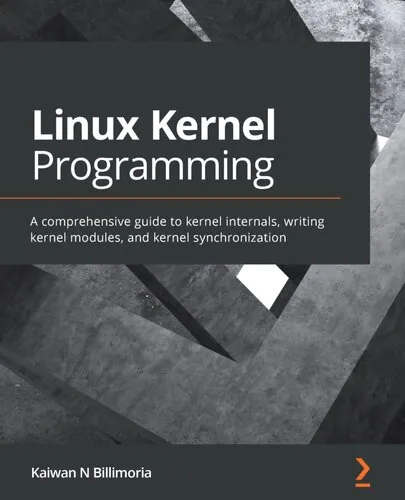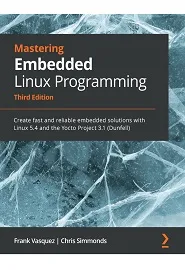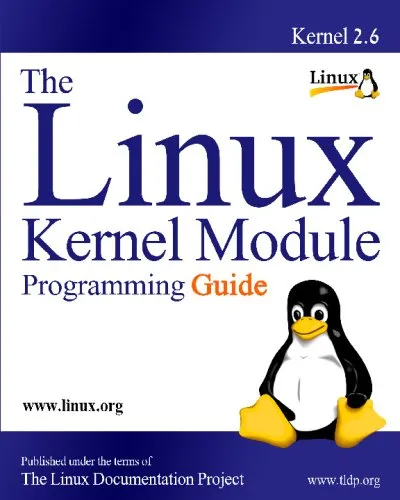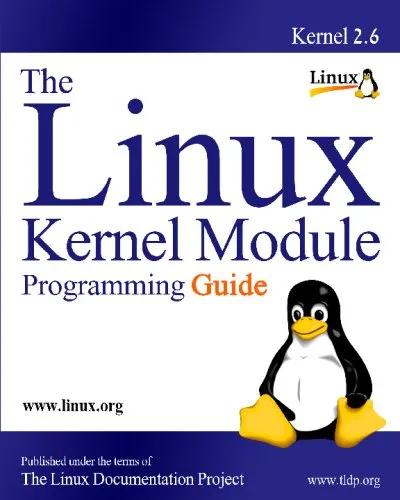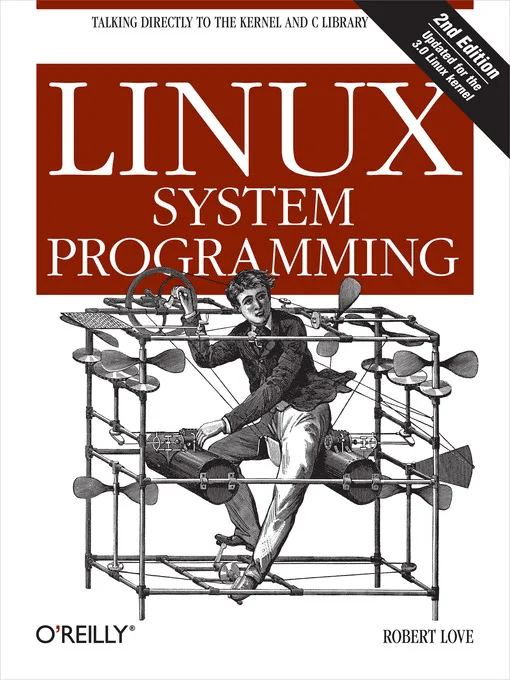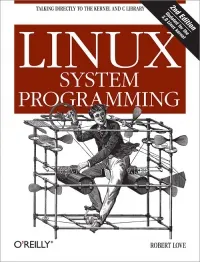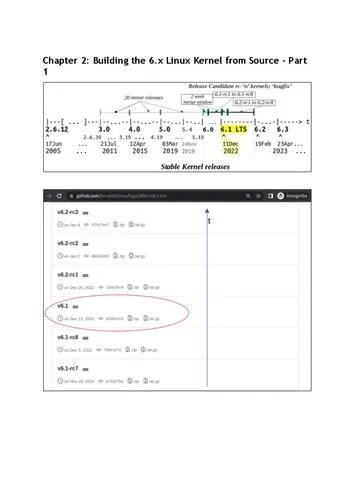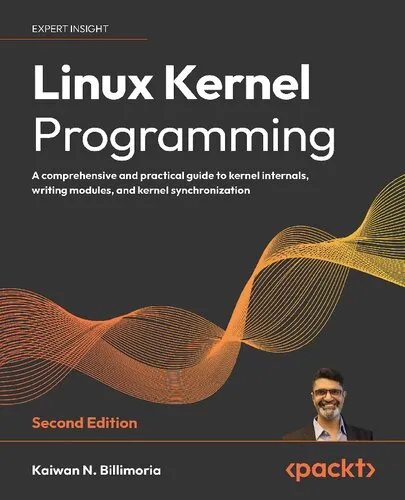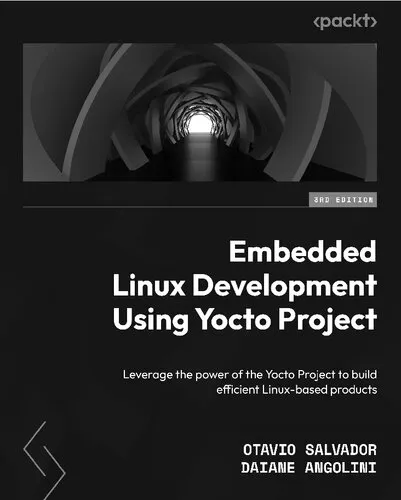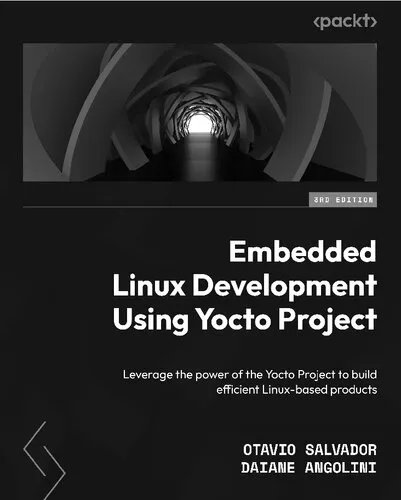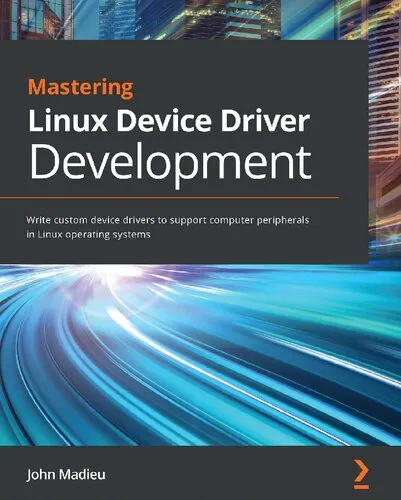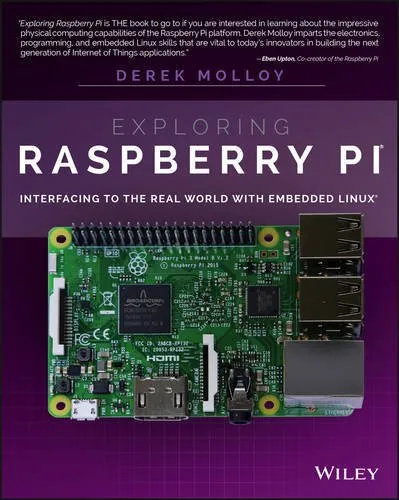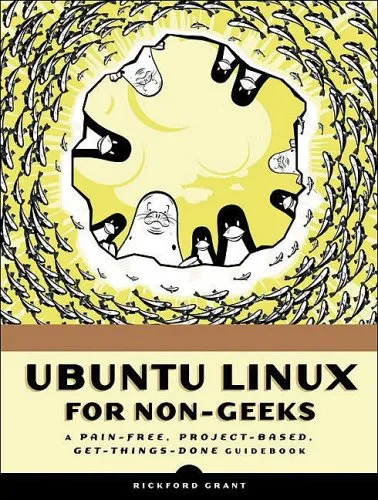Linux Kernel Programming: A comprehensive guide to kernel internals, writing kernel modules, and kernel synchronization
4.5
بر اساس نظر کاربران

شما میتونید سوالاتتون در باره کتاب رو از هوش مصنوعیش بعد از ورود بپرسید
هر دانلود یا پرسش از هوش مصنوعی 2 امتیاز لازم دارد، برای بدست آوردن امتیاز رایگان، به صفحه ی راهنمای امتیازات سر بزنید و یک سری کار ارزشمند انجام بدینکتاب های مرتبط:
معرفی کتاب
کتاب "Linux Kernel Programming" نوشته Kaiwan N Billimoria، یک منبع جامع و اساسی برای افرادی است که میخواهند به عمق و ریشههای سیستمعامل Linux وارد شوند. این کتاب راهنمایی است برای آن دسته از متخصصانی که توسعه Kernel را هدف قرار دادهاند.
خلاصهای از کتاب
این کتاب با ارائه یک دید کلی از ساختار و عملکرد Kernel، به توضیح دقیق بخشهای مختلف و چگونگی کارکرد آن میپردازد. محتوای کتاب شامل نحوه نوشتن و دیباگ کردن Kernel مناطق مختلف، به ویژه kernel modules و synchronization است. این کتاب همچنین به مفاهیمی نظیر مدیریت حافظه، مدیریت فرآیندها و مدیریت دستگاههای ورودی/خروجی میپردازد که از مهمترین موضوعات برای هر توسعهدهنده سیستم عامل هستند.
نکات کلیدی
- یادگیری مبانی و ساختارهای داخلی Kernel Linux
- نحوه نوشتن و بارگذاری kernel modules
- فهم مکانیزمهای synchronization در Kernel
- دیباگ کردن و تجزیه و تحلیل عملکرد Kernel با استفاده از ابزارهای پیشرفته
نقل قولهای معروف از کتاب
یکی از نقل قولهای تاثیرگذار از این کتاب "برای تسلط بر Kernel Linux، لازم است نه تنها ابزارها بلکه ذهنیت یک معمار سیستمهای پیچیده را نیز درک کنیم." این جمله به برجسته بودن اهمیت فراگیری ابزارها و همچنین نگرشهای توسعهدهنده تأکید دارد.
چرا این کتاب مهم است؟
این کتاب به عنوان یکی از منابع معتبر و شناختهشده در زمینه برنامهنویسی Kernel Linux به حساب میآید. با ارائه دیدگاههای عملی و پروژهمحور، این کتاب میتواند خواننده را به یک توسعهدهنده ماهر Kernel تبدیل کند. اهمیت این کتاب در این است که به تمام جنبههای مهم و کلیدی که هر توسعهدهنده باید فرا بگیرد، میپردازد.
Welcome to Linux Kernel Programming: A Comprehensive Guide to Kernel Internals, Writing Kernel Modules, and Kernel Synchronization. This book is your essential resource for delving deep into the world of Linux kernel programming, unraveling the complexities of kernel internals, developing kernel modules, and mastering the art of kernel synchronization.
Detailed Summary of the Book
The book is meticulously crafted to serve both newcomers and experienced developers eager to expand their knowledge and skills in Linux kernel programming. It begins with a solid foundation, providing a thorough introduction to the Linux kernel architecture and its intricate components.
The journey through this book includes understanding the kernel’s subsystems, processes, memory management, and file systems. You will explore kernel modules, which allow adding functionalities to the kernel without altering its codebase. With a hands-on approach, you'll learn how to write, compile, and deploy modules that interact seamlessly with the kernel.
The synchronization section is a highlight, as it addresses the critical challenges of concurrency in kernel programming. Through detailed explanations and practical examples, you will gain proficiency in managing and synchronizing kernel activities, ensuring efficient and deadlock-free operations.
Key Takeaways
- Grasp fundamental Linux kernel concepts and its system architecture.
- Learn to efficiently write and manage kernel modules.
- Memorize essential kernel subsystems and their functionalities.
- Master synchronization mechanisms to handle concurrency challenges.
- Gain insights into debugging techniques for effective kernel development.
Famous Quotes from the Book
“Kernel programming is not about writing code that runs; it's about writing code that interacts effectively with the system and hardware.”
“In understanding the kernel, one sees the full lifecycle of a program beyond the simplicity of user-land operations.”
Why This Book Matters
The significance of this book lies in its comprehensive approach to demystifying kernel programming for all levels of practitioners. Linux remains the backbone of modern computing, from serving as the operating system for the world’s fastest supercomputers to powering Android devices used daily by millions.
Understanding the Linux kernel is crucial for developers who wish to contribute to open-source projects, develop system-level applications, or enhance existing systems' performance and security. As you work through this book, you will develop a robust understanding of the core principles and practices of Linux kernel programming.
Embracing such knowledge not only broadens your skillset across multiple domains but also enhances your problem-solving ability, allowing you to tackle real-world challenges effectively.
دانلود رایگان مستقیم
شما میتونید سوالاتتون در باره کتاب رو از هوش مصنوعیش بعد از ورود بپرسید
دسترسی به کتابها از طریق پلتفرمهای قانونی و کتابخانههای عمومی نه تنها از حقوق نویسندگان و ناشران حمایت میکند، بلکه به پایداری فرهنگ کتابخوانی نیز کمک میرساند. پیش از دانلود، لحظهای به بررسی این گزینهها فکر کنید.
این کتاب رو در پلتفرم های دیگه ببینید
WorldCat به شما کمک میکنه تا کتاب ها رو در کتابخانه های سراسر دنیا پیدا کنید
امتیازها، نظرات تخصصی و صحبت ها درباره کتاب را در Goodreads ببینید
کتابهای کمیاب یا دست دوم را در AbeBooks پیدا کنید و بخرید
1921
بازدید4.5
امتیاز0
نظر98%
رضایتنظرات:
4.5
بر اساس 0 نظر کاربران
Questions & Answers
Ask questions about this book or help others by answering
No questions yet. Be the first to ask!
